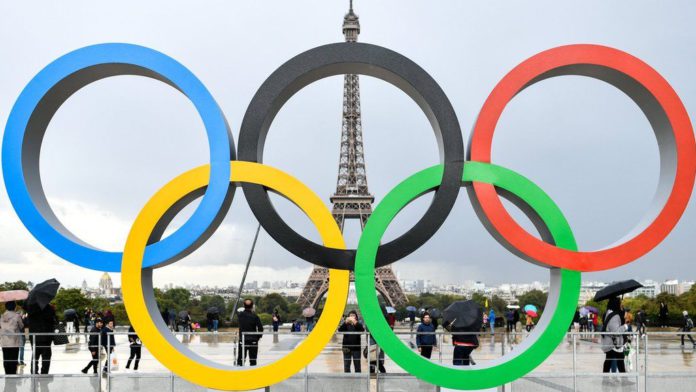The 2024 Olympic Games in Paris are 100 days away, but staging the world’s biggest sporting event is a privilege Africa has never been afforded.
That could be set to change, with Egypt preparing to table a proposal to the International Olympic Committee (IOC) for the 2036 Games.
With construction on potential venues well underway – and some already completed – one Egyptian official has declared it is “time for Africa”.
“We can’t claim the IOC and the Olympic Games to be universal without hosting a Games on the African continent,” Dr Kamilla Swart-Arries, an expert in sport, tourism, and events management, told BBC Sport Africa.
But what would it take for the continent to host the Olympics for the first time?
Does Africa have the infrastructure?
Africa has previously put on large sporting events, including the 1995 Rugby World Cup and 2010 Fifa World Cup in South Africa, while Morocco will co-host football’s biggest tournament in 2030.
Dakar in Senegal is preparing for the 2026 Youth Olympic Games, but the sheer scale and cost of hosting the Olympics presents the main challenge for any African bid to overcome.
There will be 10,500 athletes competing in 329 events in Paris, with the Paralympics in August and September featuring 4,400 athletes in 549 events.
Around 15 million tourists are expected to visit the French capital.
According to Sharif El Erian, the secretary general of Egypt’s National Olympic Committee (NOC), there are “very few countries in Africa” which have the capability to host the Games.
“They were totally right not to come to Africa before,” he told BBC Sport Africa.
“If you want me to pick three countries who are the best when it comes to facilities in Africa, I can pick easily: Egypt, South Africa and Morocco. The rest have no chance.”
Some facilities earmarked by Egypt for 2036, including a 90,000-seater stadium, are already in use at its yet-to-be-named New Administrative Capital, located some 40km east of Cairo.
“I think Egypt is ready now,” El Erian added.
“The main support infrastructure – roads, security, airports and hotels – has been developed in the past seven or eight years very strongly.”
What does Egypt need to do to win?
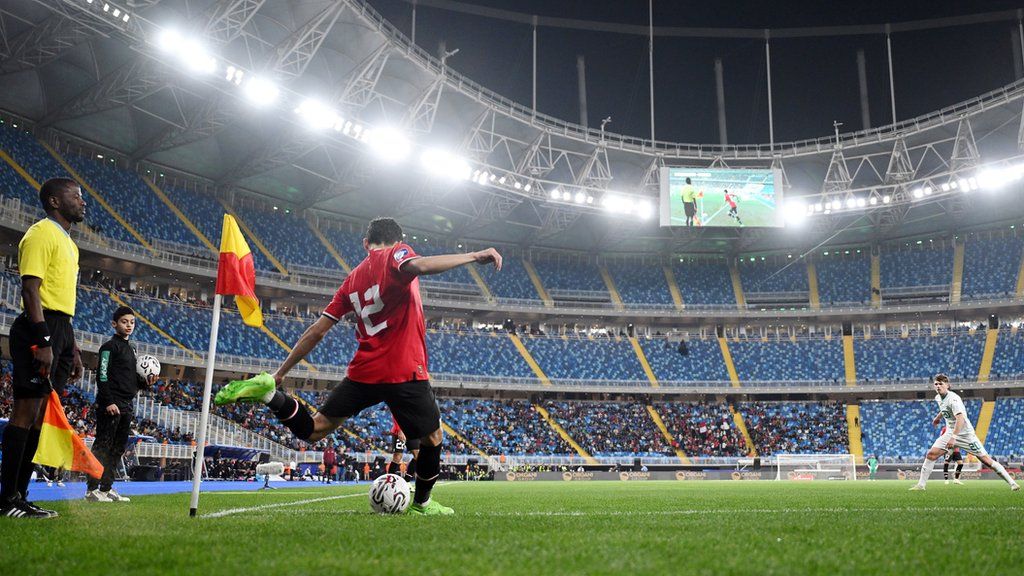
Egypt’s NOC gained approval to bid from President Abdel Fattah al-Sisi back in September 2022 so, in short, the North African country needs to convince the IOC’s executive board.
Yet, amid competition, it may not prove straightforward.
“It’s a dialogue process. The process for bidding has changed a lot,” Dr Swart-Arries, an associate professor at the Hamad Bin Khalifa University in Qatar, added.
IOC president Thomas Bach visited the New Administrative Capital in 2022 and toured the 92-acre sports complex that will be named the Olympic City.
“He saw for himself that we are very capable,” El Erian said.
A statement issued by the Egyptian cabinet, external said that Bach had “asserted that Egypt’s sporting infrastructure gives it an opportunity to host the 2036 Olympic Games”.
“The good thing is the whole continent is behind us through Anoca (the Association of National Olympic Committees of Africa),” El Erian added.
“I hope that we are a strong contender. It will benefit the ideas and the legacy of the IOC.”
Who could Egypt be up against?
No official bids have been submitted for the 2036 Games, but several countries are already vying for position.
India’s Prime Minister Narendra Modi says his country “will leave no stone unturned” in efforts to secure the showpiece while Mexico and Indonesia have expressed interest in hosting.
Turkey is also expected to bid again after several failed attempts by Istanbul, including to Tokyo for 2020.
Another option in the long term could be a regional African bid.
“We’ve seen it more with the Fifa World Cup than in an Olympic Games but, potentially, maybe we should open ourselves up to that kind of thinking,” Dr Swart-Arries said.
“Even if we look at Paris 2024, the surfing is in Tahiti. It’s not out of the ordinary to consider a regional Games in the future.”
Has Africa tried to host before?
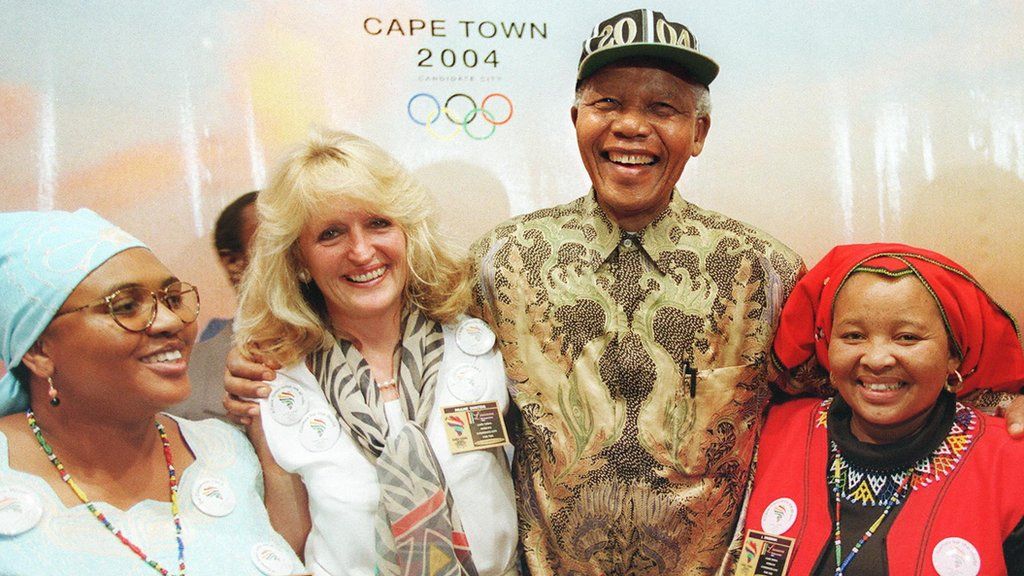
The Egyptians have previously mounted three unsuccessful Olympic bids.
Alexandria missed out to Berlin for both the 1916 event (which was ultimately cancelled) and in 1936, while Cairo failed to make the IOC’s shortlist for the 2008 hosts.
South Africa has come closest to bringing the showpiece to the continent when Cape Town was eliminated in the penultimate round of voting for the 2004 Games, which ended up in Athens.
Dr Swart-Arries worked on that bid and points to several reasons for its failure.
“A large part of it was in relation to geopolitics,” she explained.
“At the time we were bidding it was 1995 to 1997, just post-apartheid. We were probably not ready from the perspective of Olympic sports.
“Also during that period, in terms of the bidding process itself, we know that the Olympic Games was fraught with corruption.”
Humanitarian concerns
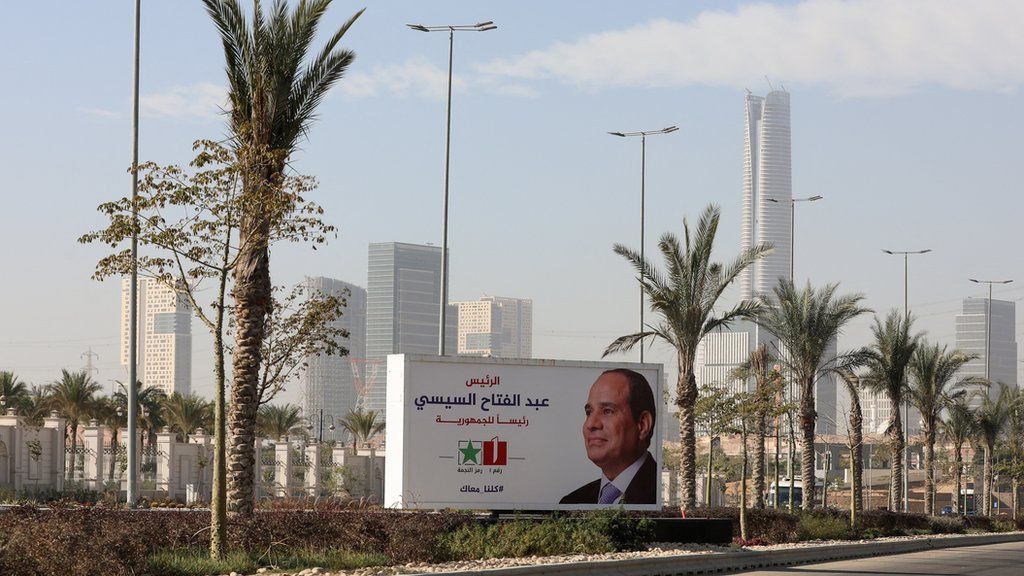
Hosting large sporting events brings scrutiny on human rights, which were under the microscope when Qatar hosted the 2022 World Cup.
Human Rights Watch has highlighted “nationwide repression” since Egyptian President Sisi came to power in 2014 following a coup which overthrew the Muslim Brotherhood’s Mohammed Morsi.
Whether that has an impact on an Egyptian bid remains to be seen – but controversy is never far away when the Olympics are concerned.
Muslim athletes from France are not expected to wear the hijab at the 2024 Games, adhering to the country’s ban on women wearing headscarves.
But the IOC has made it clear that its rules, with no restrictions on religious or cultural attire, will apply in the Olympic Village.
“For me, living in Qatar and also coming from South Africa, it’s quite frustrating to see how these bids are questioned – particularly in the western media,” Dr Swart-Arries said.
“In Paris, women are challenged by the current regulations. Every Olympics needs to question human rights.
“After Paris, it is Los Angeles 2028. Why not look at the whole issue of gun violence in the United States as an example of where changes needed to be made?
“Any Games can be used to enhance and improve human rights or make significant positive contributions.”
What benefits will it bring?
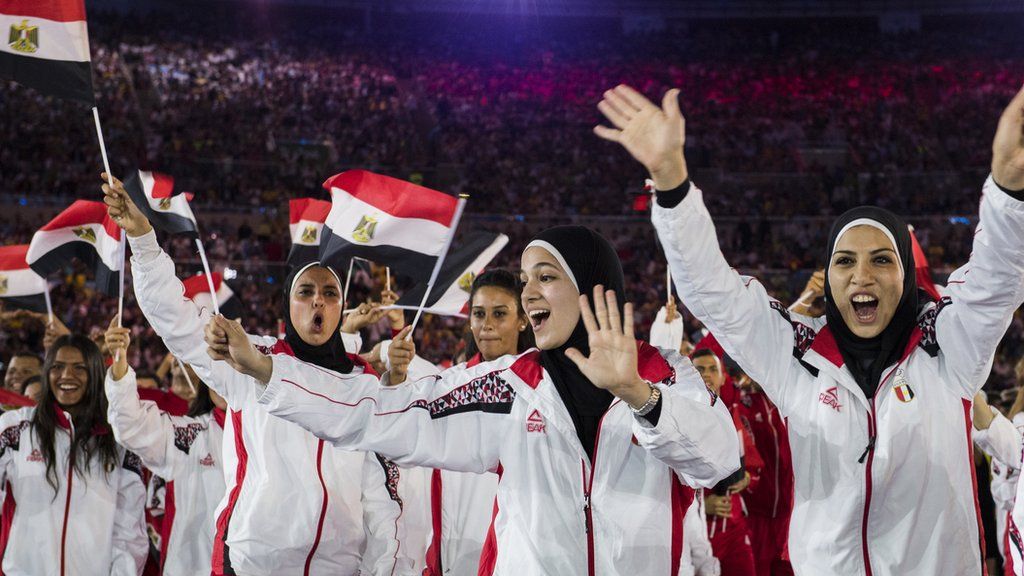
Despite the cost of staging the Olympics, the prestige and subsequent attention – including a TV audience measured in the billions – is usually worth it.
“I think it (an Egyptian Games) will be profitable because the main profit of any Olympic Games is the broadcasting,” El Erian said.
Sam Ramsamy, once president of South Africa’s NOC and a former IOC member, says it is “high time” the Olympics comes to Africa and there would be benefits “right across the board”.
“It encompasses economics, human rights, development in all aspects, and climate change, which is very important at this particular stage,” he told BBC Sport Africa.
“Not too long ago, Cairo held the COP programme on the environment.
“Most importantly, it will inspire all of Africa. It [will show] that Africa is not just a sleeping giant, it is a giant that is awake.”

